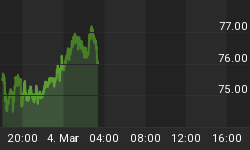Recap of Recent Greek Events
On Friday, Greek prime minister Alexis Tsipras cancelled a meeting with eurozone officials in Brussels. He returned to Athens to address outrage from within his own party.
Tsipras then blasted the latest deal offer made by Jean-Claude Juncker in a rant to the Greek parliament. Tsipras said he was "unpleasantly surprised" by the proposal put forward by the International Monetary Fund, European Central Bank and European Commission during his visit to Brussels for talks with commission head Jean-Claude Juncker.
"I would like to believe that this proposal was an unfortunate moment for Europe, or at least a bad negotiating trick, and will very soon be withdrawn by the same people who thought it up," he said.
After blasting Juncker's deal, Tsipras picked up the phone and made a call to Russian President Vladimir Putin. They agree to meet in two weeks at the St. Petersburg International Economic Forum.
Greece also missed a debt payment to the IMF on Friday. That did not constitute default because IMF rules allow multiple payments within a month to be bundled on the last due date. That trick was last used by Zambia in the 1980s.
Exterminated from Within
Greek energy minister, Panagiotis Lafazanis, ruled out a deal stating "I do not think that Syriza will accept for the country and its people to be exterminated inside the eurozone. A third consecutive austerity loan programme will be the most destructive option possible for Greece."
For a more detailed recap of Friday's events, please see Tsipras Talks With Putin; Energy Minister Rules Out Deal; Wordsmithing Extraordinaire; 16 Tons.
Juncker Spurns Tsipras Meeting
Given all the above, it's no wonder that today Juncker Spurns Tsipras Meeting.
Alexis Tsipras, the Greek prime minister, asked to meet Jean-Claude Juncker on Saturday but was spurned by the European Commission president rankled by the Greek leader's denunciation of his efforts to broker a bailout deal.
According to a senior official with a Group of Seven delegation, which began gathering in southern Germany on Saturday ahead of a two-day summit of the leaders of the seven leading industrialised powers that begins Sunday, Mr Juncker believed Mr Tsipras' speech in parliament left little to discuss.
"Unless he seriously addresses the issues, there's no reason to meet," said the G7 official.
The G7 official said Greece's creditors were taken by surprise both by Mr Tsipras' outright dismissal of their offer in his parliamentary address as well as a decision to delay a €300m loan repayment owed to the IMF last Friday.
Mr Juncker's rejection of a meeting with Mr Tsipras returns the bailout talks to a point of stalemate just a week after creditors believed the talks were making progress for the first time in nearly four months.
Many officials believe a deal to release €7.2bn in desperately-needed bailout aid needs to be reached ahead of a June 18 meeting of eurozone finance ministers so that Athens has enough time to implement an agreed set of economic reforms in order to get the rescue funds before the bailout expires at the end of the month.
Best Friend and Advocate?
The European Commission, and particularly Mr Juncker, have long seen themselves as Greece's strongest advocate at the creditors' table, frequently clashing with the more hardline views of the IMF and the German finance ministry.
Mr Tsipras' speech Friday was the second time his government has publicly spurned Commission efforts, however. In February, Yanis Varoufakis, the charismatic Greek finance minister, publicly revealed Pierre Moscovici, Mr Juncker's economic commissioner, had been quietly attempting to broker a compromise deal to extend Greece's bailout without Mr Dijsselbloem's knowledge.
With "advocates" like Juncker, who needs enemies?
Curiously, Greek officials deny Tsipras asked for a meeting today with Juncker, stating Greece's differences now lie with Berlin, not Mr Juncker in Brussels.















